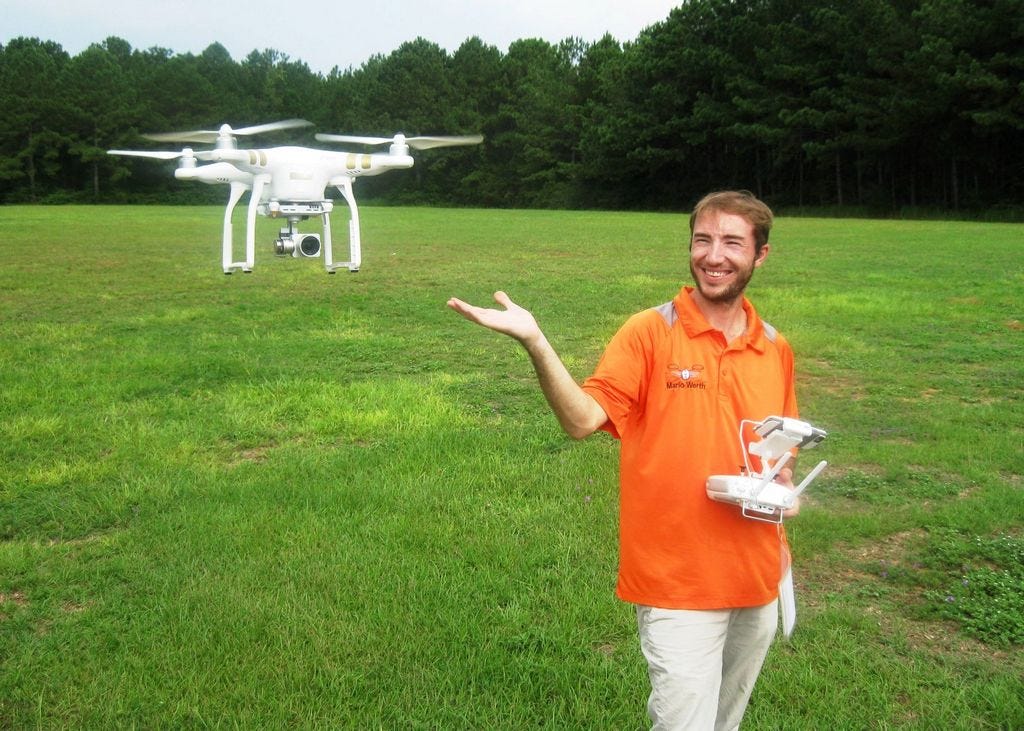
CRESTVIEW — There’s a reason commercial unmanned aerial vehicle operators must be licensed pilots.
A recent near-collision between a sightseeing helicopter and a drone over Crab Island illustrates the point, said Mario Werth, owner, operator and chief pilot of Advanced Aerial Operations in Crestview.
4 THINGS TO CONSIDER
“What most people miss is a pilot next to you to take responsibility,” Werth said, adding operators of many aerial imaging services don’t understand the technicalities that come with flying drones.
These considerations include:
●Air temperature: “The hotter it is, the thinner the air, the poorer the flight time,” Werth said.
●Heating the battery: Drones should have internal battery heaters to extend flying time.
●Decreasing rotor rate when descending. Some pilots damage their vehicles by speeding up the rotor rate thinking it will slow the descent. Actually, it creates greater “rotor wash,” or air disturbance, which gives the rotors less air to “grab,” Werth said.
●Scan air operations scanner radio: “We’re in the middle of military and commercial flight paths,” Werth said.
DRONES’ NUANCES
“People say, ‘Why do I need to know all this? It’s just a little toy!’” Werth said. “But it’s not when you go commercial.”
The near mishap in Destin shows that “you always have to give way to manned aircraft,” Werth said. “The Destin drone operator came within 50 feet of a sightseeing helicopter. He could have an $11,000 fine. That can bankrupt his company.”
It could’ve been even worse. “If that had hit in the tail rotor, it would have been a fatality,” Werth said.
He knows — in addition to operating drones, Werth is a licensed helicopter pilot, specializing in the bubble-canopied Bell 47, “the ‘M*A*S*H’ helicopter,” he said, referring to the TV series.
MONEY SAVER
Rather than charge clients big bucks to survey properties by helicopter, Werth can do it for a fraction of the cost with his FAA-registered, licensed and insured Phantom drone.
Clients include real estate agents who enhance sales opportunities with aerial video of listings. A Baker farmer saved “several grand” after Werth flew an aerial survey of his crops before he did a blanket insecticide spray of the entire field; the video showed suspected crop damage was in just a few areas and was much less expensively addressed.
“This technology can be a real asset and money-saver for small farmers,” state Sen. Greg Evers, a Baker farmer, said.
Equally impressed was John DiGiacomo, a government contracting specialist at the University of West Florida College of Business, who sees potential for working with Werth’s company.
Werth’s efforts aren’t all aimed at expanding his business; he volunteers with area robotics programs, such as Davidson Middle School’s, to create drone education programs.
“I love seeing progress in these programs,” Werth said. “When I can teach a student until he can teach me something, that’s the best.”
This article originally appeared on Crestview News Bulletin: Drones are assets, but be careful, Crestview pilot says (VIDEO)
